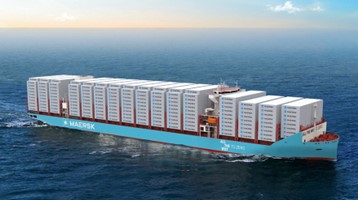Methanol as a Sustainable Marine Fuel
Methanol is the leading candidate for a sustainable alternative to petroleum based heavy oil marine fuel. While methanol provides less energy per ton of fuel than bunker C, for example, it has several advantages, including a substantial reduction in air pollution and the fact that methanol can be made from sustainable raw materials such as biomass from managed forests. Marine vessels fueled by methanol emit 60% less NOx, and up to 99% less SOx than conventional petroleum bunker-fueled ships. More importantly, sustainably produced methanol is a carbon neutral fuel that is miscible with water greatly reducing the hazard from inadvertent spills.
An important step in the transition to sustainable fuels has been taken by Maersk Lines, which has ordered six container ships with engines that operate on methanol.
EPR offers a proprietary technology-based system for the conversion of sustainably grown biomass for production of green methanol. Feedstock for this process can be sustainably grown wood biomass from managed forests or biomass recovered from municipal solid waste. The carbon capture and utilization (CC&U) process extracts carbon dioxide is from stack exhaust and converts it to methanol. Deployment of CC&U technology can reduce fuel costs while decreasing greenhouse gas emission from conventional power plants and other industries that use boilers.

Figure 1. Image depicting one of six Maersk methanol powered container ships schedule for delivery starting in 2026
